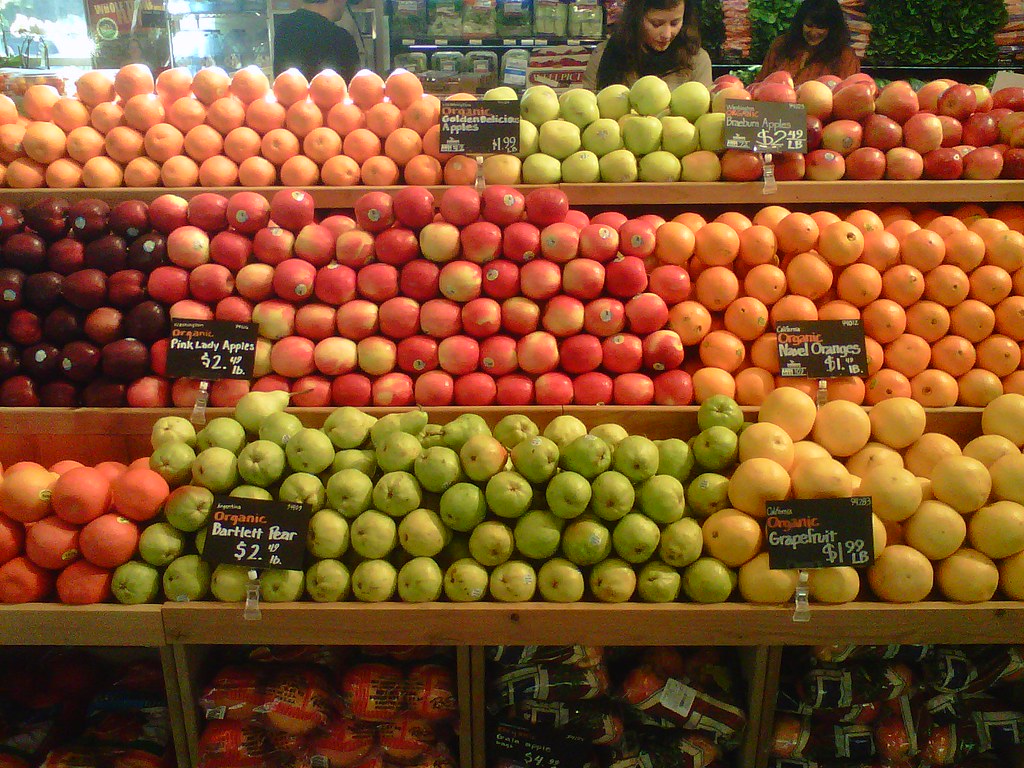

"Eat from the good things with which We have provided you and do not transgress [or oppress others] therein, lest My anger should descend upon you. And he upon whom My anger descends has certainly fallen." (Quran, 20:81)
This past Sunday, community members and activists came together to exchange ideas about the importance of making environmentally conscious and socially responsible food choices. The event focused on the health implications of the foods we eat and was fourth in a “Focus on Food,” Film & Discussion series offered through the Noor Cultural Centre in Toronto.
The event opened with a screening of a National Film Board documentary entitled Genetic Takeover or Mutant Food, which explores the rise of transgenic crops and the unknown health effects of genetically modified (GM) foods on human systems. The film highlighted the need for more research, stricter regulation and greater transparency when reviewing and approving GM foods for consumption. It also brought to light the issue of commoditization of the Earth’s resources, specifically manipulating the genetic makeup of plants and terminating its right to propagate. The film closes by stressing the importance of placing the public good ahead of corporate profits and following the precautionary principle before releasing GM products into the environment.
The discussion component was facilitated by Georgina Wilcock, a medical doctor specializing in Obstetrics and Gynecology who currently practices at the Scarborough Hospital. She has been an active participant in the environmental health field, running for the Green Party of Canada in the 2008 federal election and continues to support the party as its Health Critic. She is also involved with the Canadian Association of Physicians for the Environment and the Live Green Toronto initiative.
Georgina opened with a presentation examining some of the health issues associated with the foods we consume. The overuse of pesticides and the associated resistance have significant consequences within our own bodies and the environment at large. Chemicals that act as hormone disrupters, pesticides that bioaccumulate and toxins that persist in the environment are serious concerns in addition to the unknown health implications of GM foods. Meat products also have their own inherent health issues as well. Animals that are raised in feedlots face extreme stress from living in confined conditions and are given high doses of antibiotics to stave off infection. This contributes to lower quality meat that is higher in bacteria and lower in omega fatty acids. Georgina then poses the question of whether this is humane and does this follow the Islamic teachings of how animals should be treated?
Throughout the discussion several suggestions were offered on how we can both lessen our environmental footprint and eat healthier as well. These include:
1) Reducing the amount the meat we consume and to purchase meat that has been ethically and humanely raised; without the use of antibiotics or steroids and is fed a natural diet. 2) Purchase certified organic produce or better yet, try your hand at growing your own fruits and vegetables to ensure that it is completely natural and pesticide free. 3) Consider purchasing from local farmers so you can directly ask how your food was grown and how their animals are raised. Building relationships with farmers offers your piece of mind and supports your local economy.
For more information about upcoming events at the Noor Cultural Centre, visit their website or join Khaleafa.com on Facebook for future event postings.
Photo credit from Tantek Çelik
